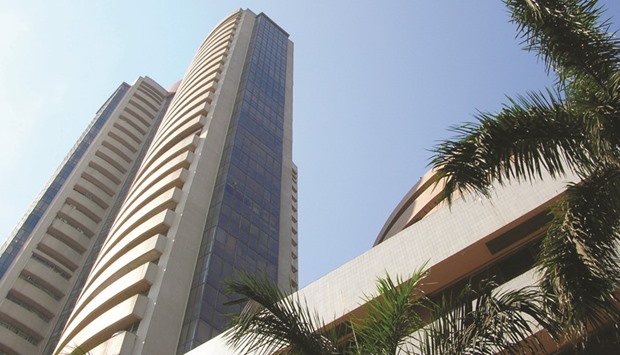Germany remained in a state of flux though chancellor Angela Merkel won a fourth term, but has to contend with an uneasy coalition to form the next government. Asia’s shares were a pale shadow of their former selves, which made investors here toe the line. Europe did not offer a promising picture either.
Soon after the opening, the BSE benchmark slipped into the red and hit a low of 31,474.56, but bargain buying in the last hour of the trade helped Sensex recoup part of lost grinds to settle at 31,626.63, down 295.81 points, or 0.93%. The index had lost 501.32 points in the previous four sessions.
The NSE Nifty was stuck below the decisive 9,900 mark as it tumbled 91.80 points, or 0.92%, to close at 9,872.60 after shuttling between 9,816.05 and 9,960.50. The closing is lowest for both the key indices since August 29.
The currency market lost steam, with the rupee slipping considerably against the US currency during the day. Soaring oil prices, which traded at 7-month high of $56.86 a barrel overseas, made the investors go back to the drawing board.
Foreign portfolio investors continued to give shares a wide berth, offloading net Rs1,241.73 crore last Friday. Domestic institutional investors purchased shares worth Rs521.17 crore, showed provisional data.
Meanwhile the rupee yesterday weakened to a fresh six-month low against the US dollar after local equity markets fell for fifth consecutive sessions.
The rupee closed at 65.12 a dollar—a level last seen on March 24, down 0.50% from its Friday’s close of 64.80. The home currency opened at 64.86 a dollar and touched a low of 65.18.
In last five sessions, Sensex declined over 2.46% or 800 points due to worries of overshooting fiscal deficit target and escalated tensions between US and North Korea.
“There’s some buzz around possible stimulus package which the government may announce to boost growth. However, market seems more concerned about its impact on fiscal deficit. Besides, anxiety around the geo-political tussle is adding fuel to the recent turmoil”, said Jayant Manglik, president, retail distribution, Religare Securities.
The 10-year bond yield closed at 6.619%, compared to its previous close of 6.663%. Bond yields and prices move in opposite directions.
“Factoring in the global and domestic factors, we expect the 10-year benchmark yield in the range of 6.5-6.8% for the rest of FY2018. We hold on to our average USD-INR of 65.25 in FY2018 on the back of global monetary policy dynamics, geo-political risks, and India’s CAD-BOP dynamics”, said brokerage firm Kotak Institutional Equities in a note to its investors.
“We had factored in a narrowing of the real interest differentials and Fed’s likely monetary/QE withdrawal policy. The heightened geo-political risks strengthen our case for a depreciating bias for the INR against the USD for rest of FY2018” Kotak report added.
All eyes were on Prime Minister Narendra Modi’s announcement on stimulus packages for housing, power and exports sector.
So far this year, the rupee has gained 4.3%, while foreign institutional investors have bought $6.24bn and $20.55bn in equity and debt, respectively.
Asian currencies were trading lower after surprising result in the German elections. Chancellor Angela Merkel won Germany’s election with a smaller share of the vote, Bloomberg reported.

